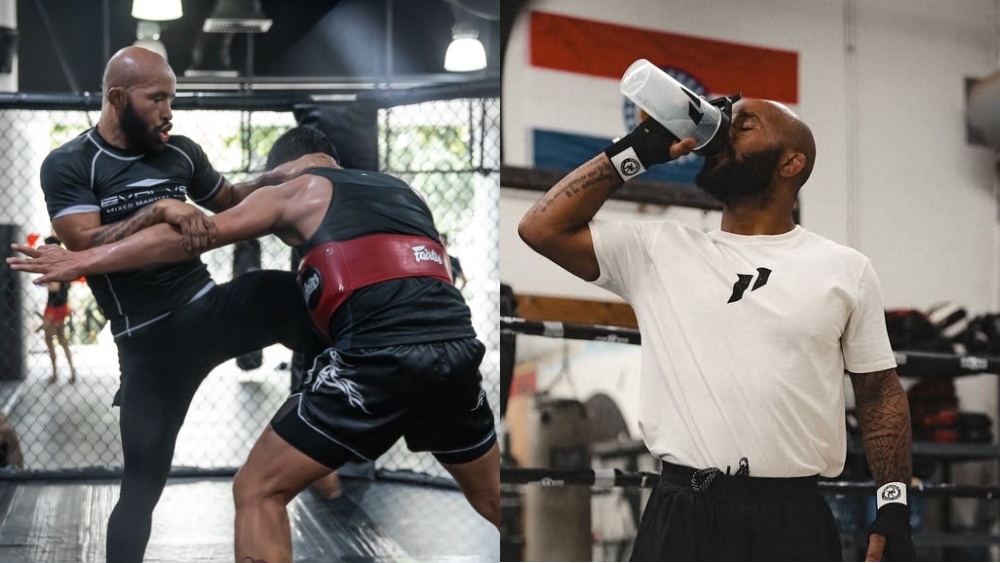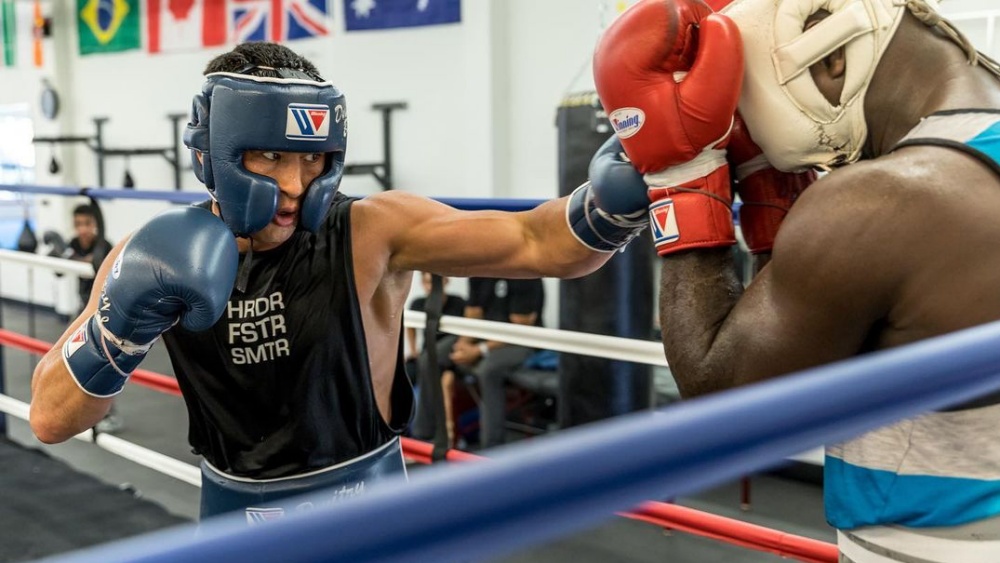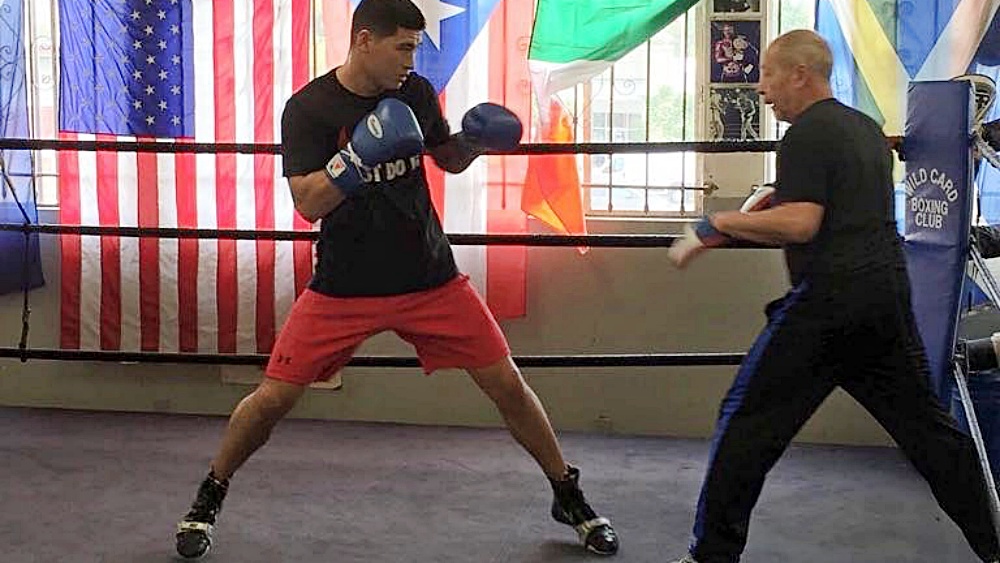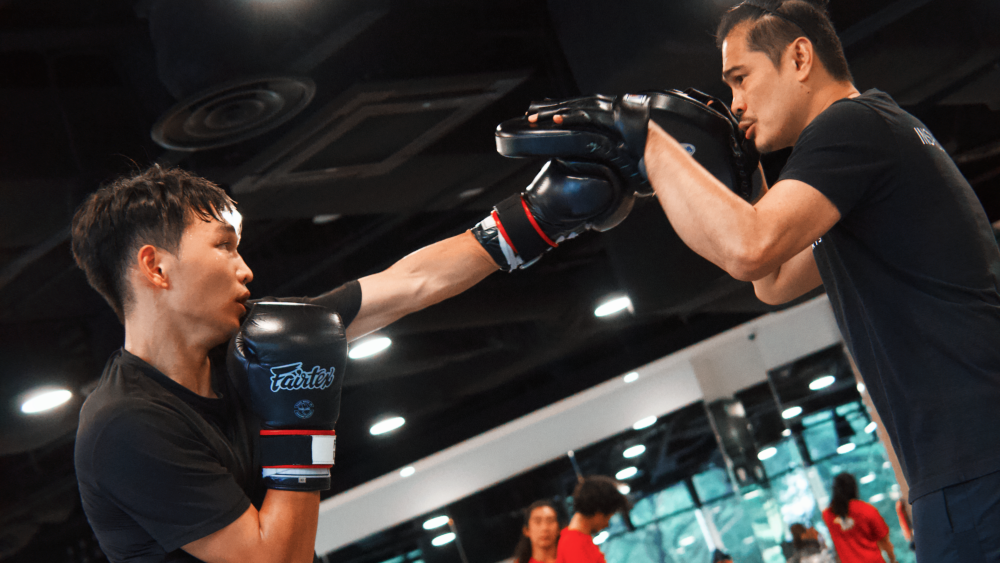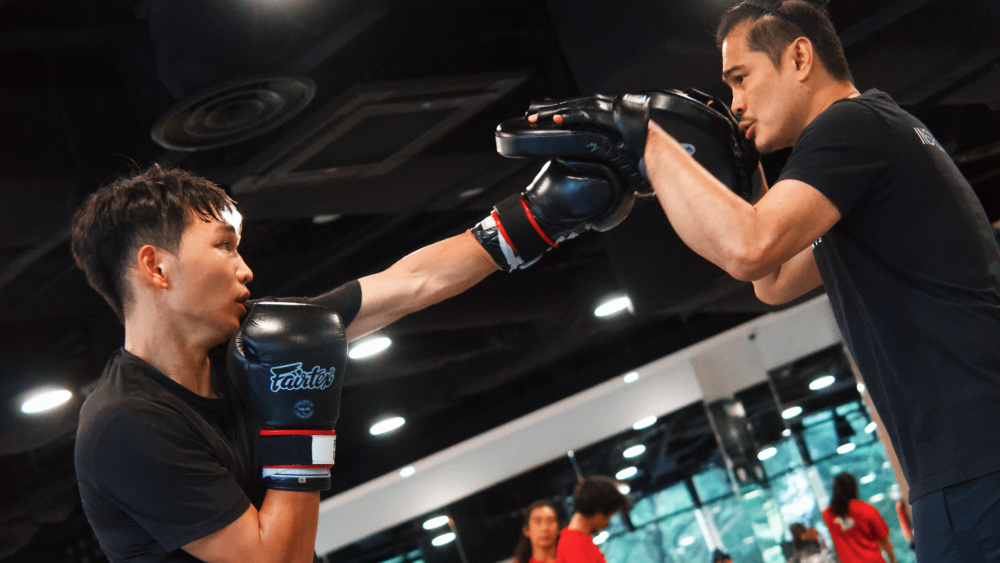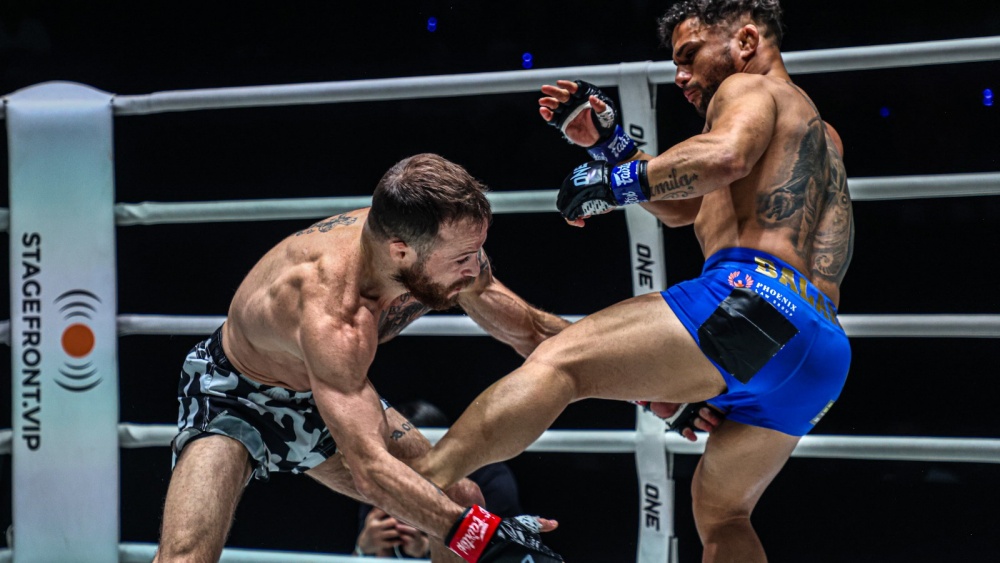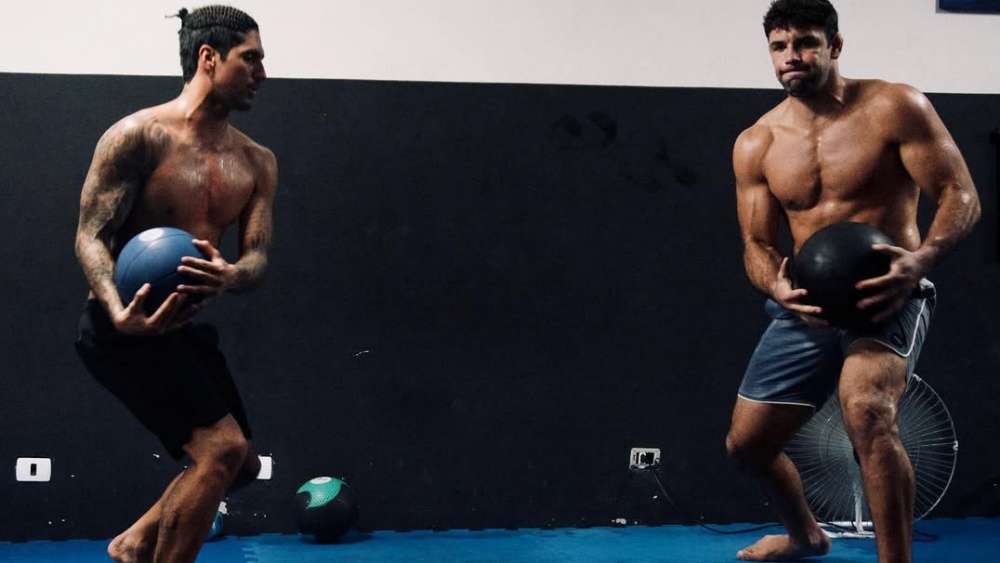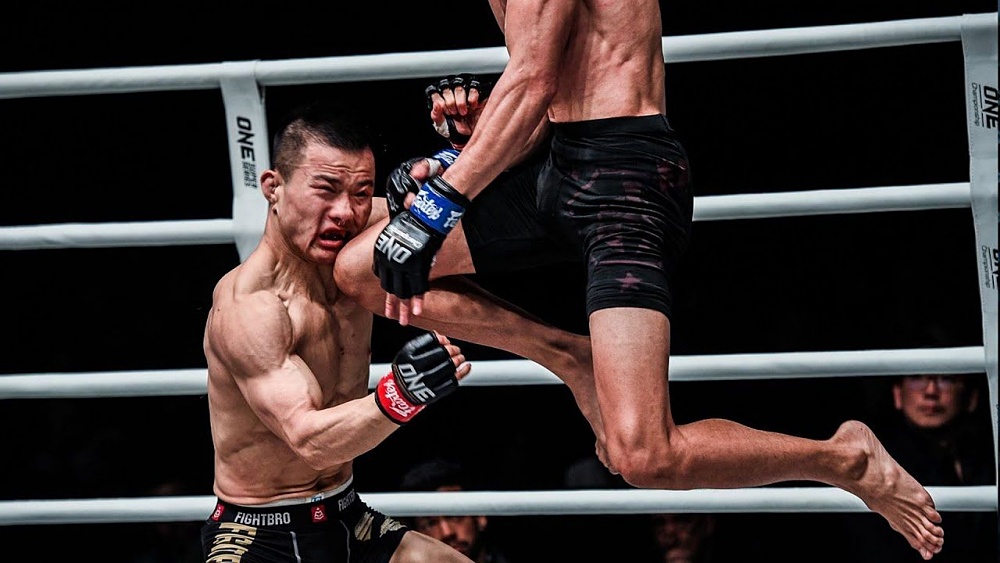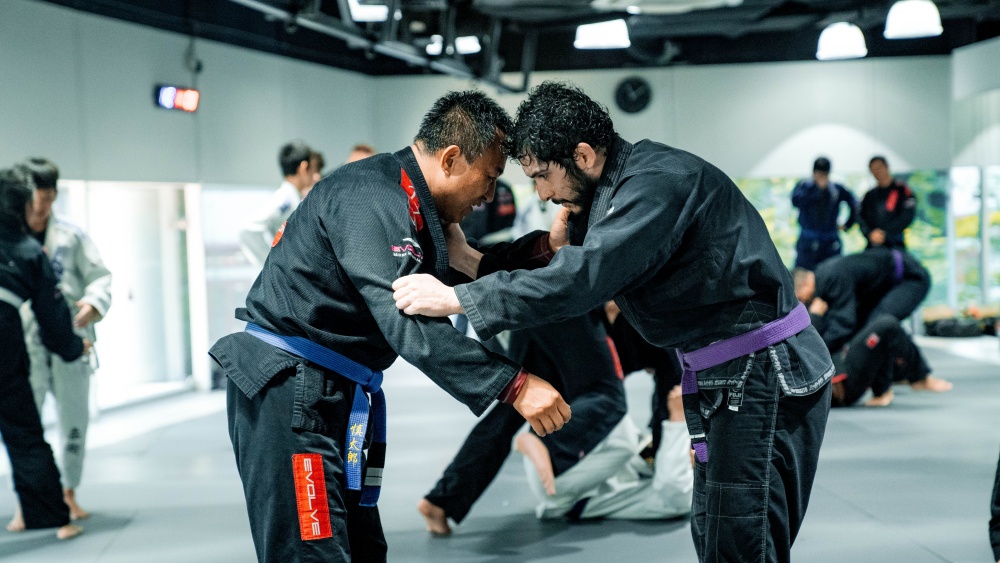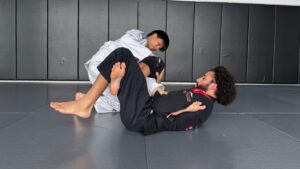Hard sparring sessions in martial arts can make you feel like you’ve just walked through a brick wall. You’ve given it your all, and your muscles are sending you a strongly worded memo saying that they need some rest. The good news is that you don’t always have to feel like that after a hard training session at the gym. There are various proven ways to speed up recovery so you can get back in the gym sooner and do it all over again.
Here’s a step-by-step guide that will lead to shorter recovery periods after intense training sessions:
1) Hydrate And Refuel
Hydrating and replenishing your body with nutrients should be your top priority after training, as sweating out mini puddles drains your body of fluids and electrolytes. Drink lots of water after training and add some electrolyte-rich beverages like sports drinks or post-workout shakes. Fruits like bananas are also rich in electrolytes like potassium.
Replenishing your body with essential macronutrients is just as vital after an intense workout. Make it a habit to consume a post-workout snack after serious training sessions so your body has the protein it needs to build stronger muscles and bones. Protein shakes shine here since many contain all the essential nutrients your body needs to recover optimally and only take a minute to prepare. Keep some protein shakes and fluids in your gym bag so you can quickly refuel right after training!
Ending your workouts with a proper cool-down period decreases your risk of muscle soreness after workouts. Spend five to ten minutes after training sessions performing light activities like cycling and dynamic stretches to gradually lower your heart rate and improve blood flow and nutrient delivery to your tired muscles.
Activities like yoga serve as cool-downs for fighters and are an effective way to keep their bodies limber. Make cool-down a regular part of your training routine.
3) Prioritize Rest And Sleep
Your body rebuilds itself while it rests, especially during deep sleep. Aim for seven to ten hours of sleep each night to ensure you get enough rest for your body to be fully restored before your next training session.
If you struggle to fall asleep, develop a bedtime routine. Sleep quality has a significant impact on athletic performance, and there’s no way around this.
4) Embrace Active Recovery
Doing less is sometimes more than doing nothing at all. Instead of spending most of your rest days sitting down on a couch, engage in low-impact activities like brisk walking, cycling, or swimming. These activities promote blood flow without putting significant stress on muscles.
Active recovery helps remove metabolic waste from muscles, reducing soreness. Studies show that light exercises are more effective at speeding up recovery than lying in bed all day. You should even consider replacing a training session with active recovery if you’re feeling exhausted.
5) Listen To Your Body
Many athletes train themselves to fight through pain, but that’s how your body lets you know it needs a break. Learning to listen to your body is crucial to avoid overtraining. Dial back on the intensity of your training routine if you’re constantly feeling fatigued or battling sharp pain.
Your body is a finely tuned machine as a fighter, and even the most efficient machines need maintenance and repairs from time to time.
6) Invest In Recovery Equipment
Modern tech advances have made the recovery process much smoother. Inexpensive tools like foam rollers, massage guns, and compression gear help reduce muscle soreness and accelerate recovery.
Let’s take a closer look at how these gadgets work:
- Foam Rollers: These are great for loosening up tight muscles after intense training and accelerating recovery.
- Massage Guns: These devices mimic the effects of deep tissue massages, providing targeted relief for sore muscles.
- Compression Gear: Wearing compression sleeves or socks after a hard training session helps to reduce inflammation and speed up recovery.
- Heat Or Cold Therapy: Applying extreme temperatures to sore body parts can help to reduce pain and inflammation. There’s also contrast therapy, which involves alternating between cold and hot therapy without breaks in between.
7) Consider Nutritional Supplements
While getting most of your micronutrients from a balanced diet is always best, supplements sometimes can also boost recovery. For example, omega-3 fatty acids, branched-chain amino acids (BCAAs), and magnesium have been shown to fight inflammation and support muscle repair. Omega-3 fatty acids also help to improve your overall health, while BCAAs help with muscle soreness when taken before or after training.
Be sure to consult a healthcare professional before using any supplements to ensure they’re right for you!
8) Protect Your Mental Focus
A rigorous training session can be as mentally draining as it is physical. Exercises like deep breathing, meditation, or reading can help to soothe your mind and speed up recovery.
Practices that support your mental health are known to lower stress and improve sleep quality, often leading to faster recovery.
9) Don’t Forget The Little Things
Little things like scheduling full-body massages and alternating training activities are sometimes the most helpful recovery tools. Even seemingly insignificant things like purchasing a quality pair of running shoes if roadwork is a significant part of your conditioning training can speed up recovery by reducing strain on your joints, tendons, and ligaments.
Tracking how you feel after training sessions can be incredibly beneficial. You’ll notice patterns that can help to improve your routine!
Don’t Neglect Recovery!
Recovering faster after hard sparring sessions requires you to listen to your body and adjusting your training to ensure you’re getting enough rest between workouts.
Hydrate properly, refuel your body right after, and properly cool down after workouts. Getting stronger as a fighter requires you to regularly push your body to its limits while giving it enough rest to build stronger, tougher muscles that make your next workout a little easier.
You may also like:
The Mental Reset: How To Bounce Back After A Loss In Competition
Mastering The Teep: How To Use Muay Thai’s Push Kick To Control Distance
